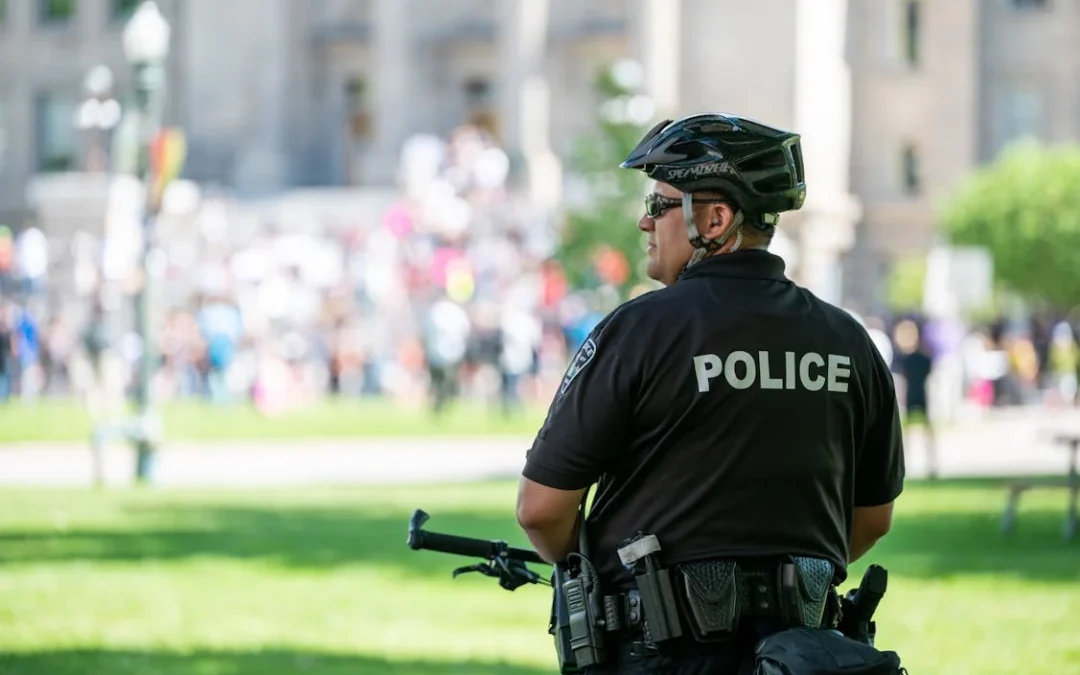In the wake of increased political protests across the state of Victoria in response to the ongoing conflict in Gaza, on 17 December 2024, Premier Jacinta Allan announced that the Victorian Parliament would be proposing new laws to better regulate protests across the state. The proposed anti-protest laws are specifically aimed at reducing the capacity for protests to turn violent and to protect places of worship from become victim to violent protests. In particular, the Premier declared that the laws were being introduced to protect religious groups from vilification caused by protests, citing a rise in antisemitic incidents and the horrific bombing of the Adass Israel Synagogue in Ripponlea.
Proposal
The proposed anti- protest laws include:
- banning the flags and symbols of listed terrorist organisations in public, to give Victoria Police more powers and fill in any gaps in Commonwealth anti-Terror legislation. Listed terrorist organisations include Hamas, Hezbollah and several other groups, including white nationalist and racist violent extremist (NRVE) right-wing groups.
- banning the use of face masks at protests, which are being used to conceal identities and shield agitators from crowd-control measures like capsicum spray. A mask ban in public demonstrations will focus on prohibiting the wearing of face coverings at protests and providing police with the power to require their removal. Exemptions would apply for legitimate health, religious or cultural reasons.
- banning the use of glue, rope, chains, locks and other dangerous attachment devices that protestors use to cause maximum disruption and endanger others
- Introducing prohibited zones for protest (i.e., where places of worship are situated)
Reasons cited for the proposal
In her press release, Premier Allan cited increased violence perpetuated by protests groups across both Victoria and Australia. She noted that agitators are increasingly using face coverings to mask their identity, which is limiting police ability to control protest groups and make arrests to those responsible for inciting violence.
Victorian Charter of Human Right
With these proposals in mind, it is important to remember that the Right to Protest is enshrined in section 16 of the Victorian Charter for Human Rights. This section protects your right to gather for a common purpose or to pursue common goals, such as protesting, gathering or meeting, whether in public or in private. The Charter applies to public authorities in Victoria, such as state and local government departments and agencies, and people delivering services on behalf of the government. The right to protest encompasses two related rights: the right to peaceful assembly and the right to freedom of association.
Right to peaceful assembly
Under the Charter, you have the right to assemble peacefully. Often this right is connected to the idea of protest or demonstration, but it also applies to people gathering for social, cultural, religious and professional purposes. It applies to people meeting in private or in public.
Right to freedom of association
Similarly, under the Charter, you have the right to meet with other people – for example, to form a trade union or similar group – to protect your common interests. This could cover economic, professional, cultural or recreational interests. This right does not automatically allow you to join an established group. Each group has the right to determine its own membership rules.
In some cases, one person’s rights may conflict with the rights of another individual or group. When this happens, it may be necessary to place limits or restrictions on these rights. According to Section 7(2) of the Charter, rights can be limited, but only if the limitation is reasonable, necessary, justified, and proportionate.
For example, the right to peaceful assembly and the right to association may need to be restricted in certain situations, such as maintaining the safety and security within a prison. Similarly, the right to freedom of association could be limited through legislation passed by the Victorian Parliament to prevent groups involved in criminal activity from gathering. It will be interesting to see how the proposed legislation will comply with the States obligations under the charter.
Increased Police Powers
Whilst the ins and outs of the legislation have not been fleshed out nor debated, it certainly appears the governments is attempting to limit the ability for groups to protest. The proposed anti-protest laws, if legislated, will give police extensive enforcement powers. Accordingly, it will be important to analyse the proposed legislation in detail to ensure that the increased police powers remain within the scope of the Victorian Charter and that sure powers limiting the right to protest are reasonable, necessary, justified, and proportionate as is required by the Charter.
How Galbally Parker Lawyers Can Help
The team at Galbally Parker will be keeping a close eye on the roll out of this proposed legislation and whether or not it includes criminal liability for those in breach of the proposed conditions. We will be sure to have an updated blog post once the legislation is debated in 2025.


